Students Explore How to Improve the Office Work Environment
Bachelor’s and master’s students at the RSU Department of Occupational and Environmental Medicine are investigating how effective different types of office furniture, various workplace furnishings, and ergonomic aids are and how they affect employee health in the Ergonomic Workplaces in a Healthy Environment Vertically Integrated Project (VIP).
‘Increasingly more ergonomic aids are appearing on the market, especially for using computers, but they are often based on one person’s active interest and have no scientific basis as to how effective they are or possible health benefits. There are also very few scientific publications on the subject.
It is therefore important to carry out tests to make sure that these aids are really effective and do not endanger people’s health,’
explains Jeļena Reste, Assistant Professor at the Department of Occupational and Environmental Medicine and researcher at the Institute of Occupational Safety and Environmental Health. Assoc. Prof. Reste is the Leader of the Ergonomic Workplaces in a Healthy Environment VIP.
Analysing theoretical literature to make recommendations based in science
The young researchers, led by Asst. Prof. Reste, are looking for scientific evidence on how the height and angle of a computer monitor can affect the strain on the neck muscles, how to reduce the adverse health effects of sedentary work, what the impact of the design and material of computer mice and mouse pads is on hand health, what the health effects of standing on comfort mats for prolonged periods of time are, among other things.
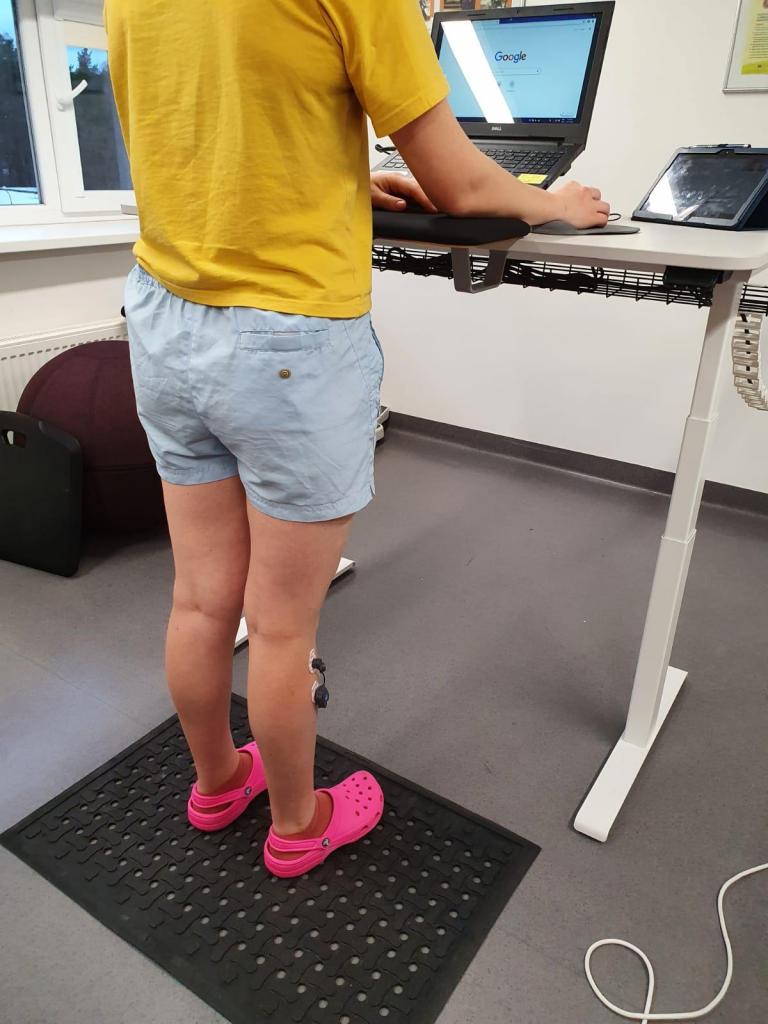
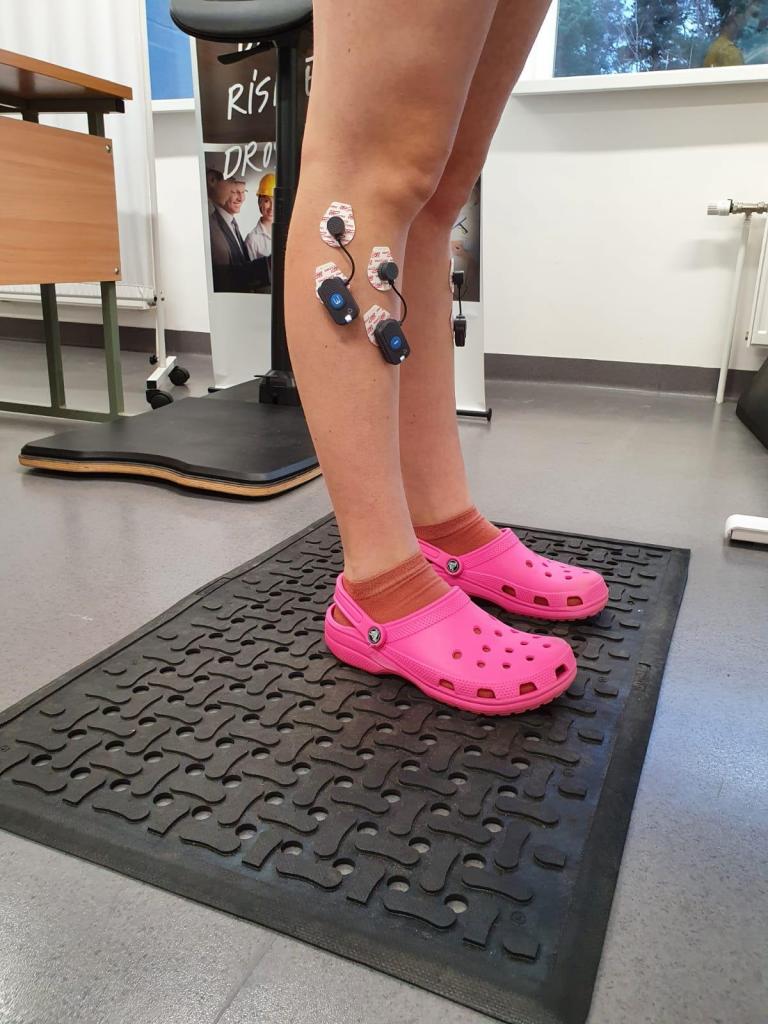
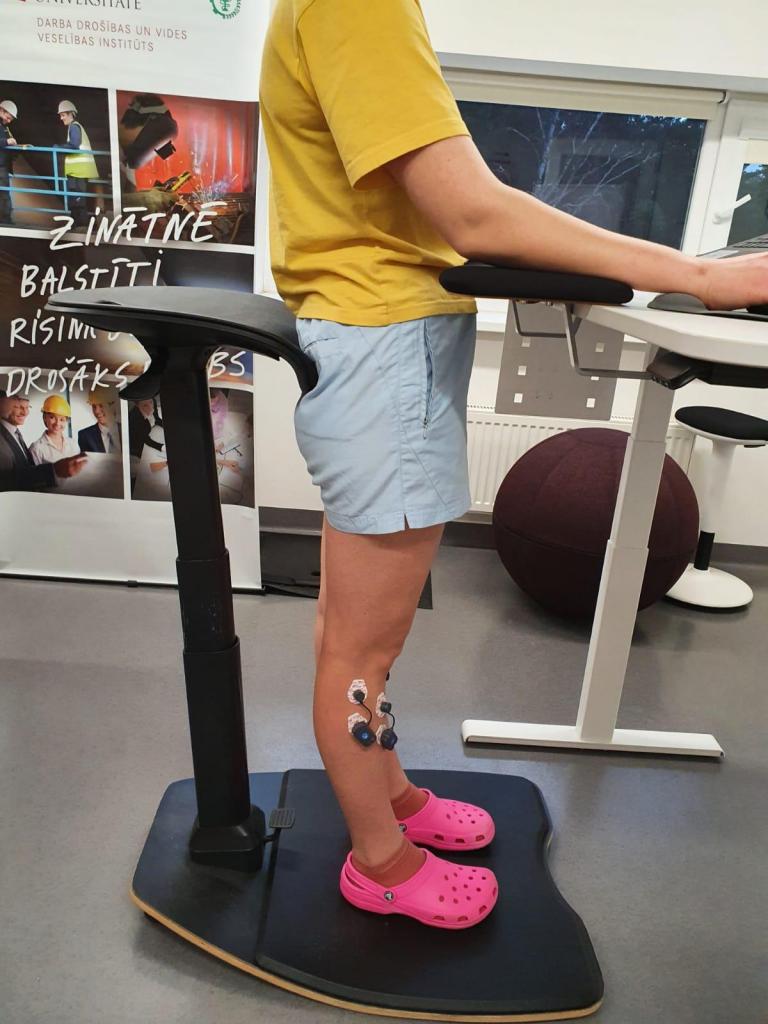
Students are investigating the health effects of standing on comfort mats for a longer period of time. Photo from the project’s archive.
First, the students research and collect data from literature, then they use modern equipment such as portable 3D motion analysis equipment, surface electromyographs, and digital infrared thermographs to perform motion analysis and various muscle tension measurements. They are also learning to use different measurement techniques (like myotonometry), process the results, analyse them, and so on.
‘We work with designers and entrepreneurs to test and improve product prototypes that the students develop after learning the basic principles of ergonomics, taking measurements, and analysing data.
We are doing research in a laboratory and plan to visit companies,’ Asst. Prof. Reste says.
The project is currently focused on four important topics:
- Theoretical and practical investigation of the biomechanics of neck movement and health factors in people working with computer monitors; the effect of monitor placement (height and angle) on neck muscle tension.
- The effects of the design and material of computer mice and mouse pads on users’ hand health, microcirculation, and the development of hypothermia during prolonged computer use.
- Investigation of the health effects of standing on comfort mats for prolonged periods of time.
- Investigation of inactivity and factors that contribute to or mitigate it.
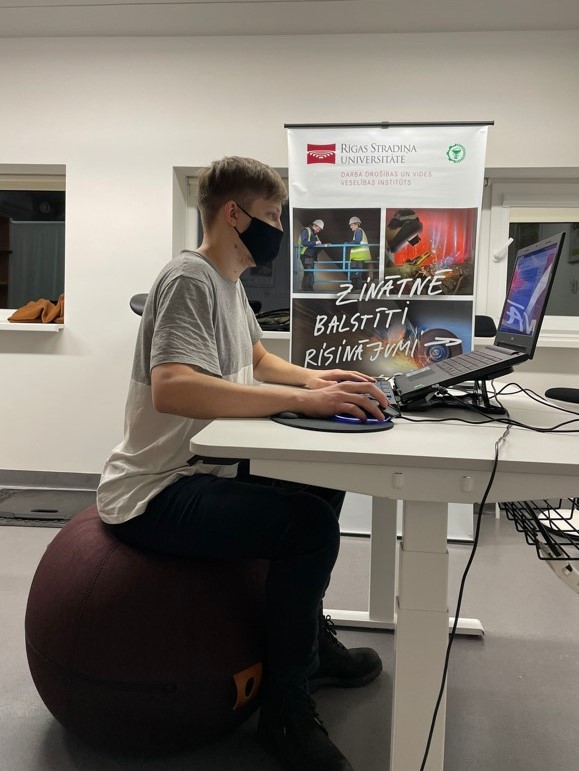
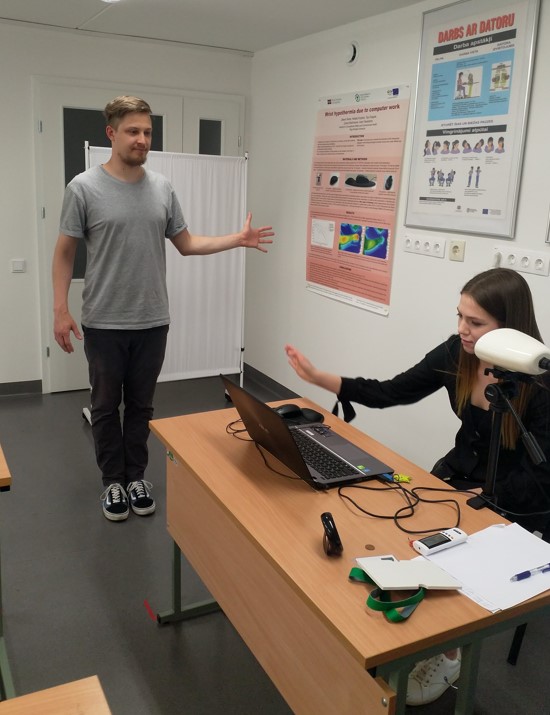
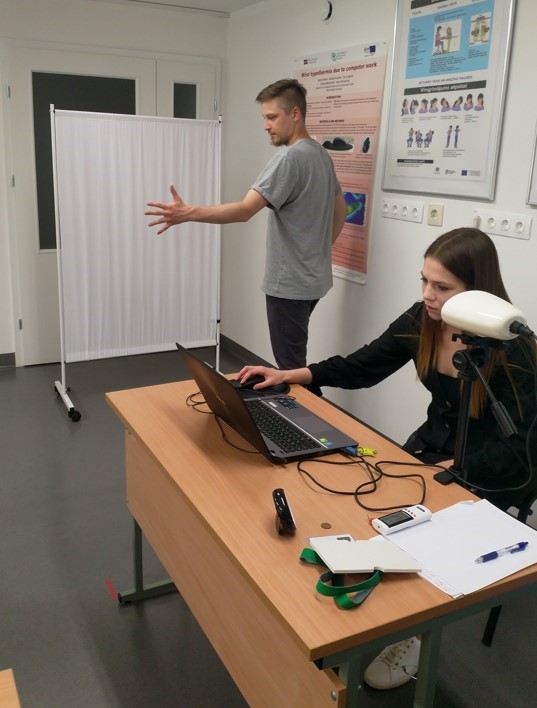
A team of hand ergonomics students test elements of active sitting (on an exercise ball) and analyse changes in hand temperature during prolonged computer use. Photo from the project’s archive.
Teamwork plays an important role in research
The project team is multidisciplinary and includes medical and healthcare students from the Faculty of Medicine and the Faculty of Public Health and Social Welfare, as well as social sciences master’s students from the Faculty of Communication.
Based on their research, the students are writing national and international scientific publications and their bachelor’s and master’s theses.
Several of the young researchers are planning to take part in the RSU International Student Conference or have already presented their work at various scientific conferences. For example, the team researching the ergonomics of computer mice and the hand participated in the International Student Scientific Conference at Samara State Medical University (Russia) remotely on 8 December 2021. They won first prize at the conference!
Vertically Integrated Projects at RSU give students the opportunity to acquire the knowledge and skills they need to carry out in-depth and practical research, as well as to disseminate the results. Since the 2019 autumn semester RSU has six VIP teams carrying out a variety of research and activities. Further information.
RSU vertically integrated projects are implemented as a part of ESF co-financed project Improvement of Governance Processes and Modernisation of Contents of Study Programmes at Rīga Stradiņš University (No. 8.2.3.0/18/A/011).

Related news
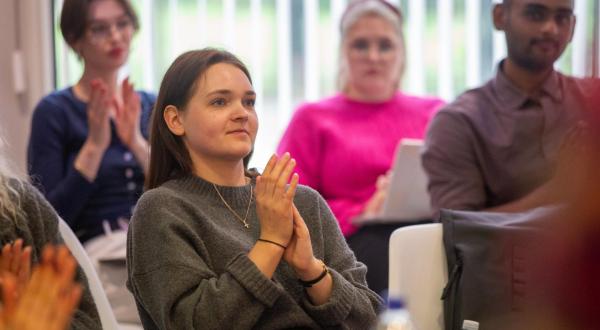 18 Student teams to start developing their ideas in B-Space incubation programmeFor RSU Employees, For Students, Innovation, B-Space
18 Student teams to start developing their ideas in B-Space incubation programmeFor RSU Employees, For Students, Innovation, B-Space


